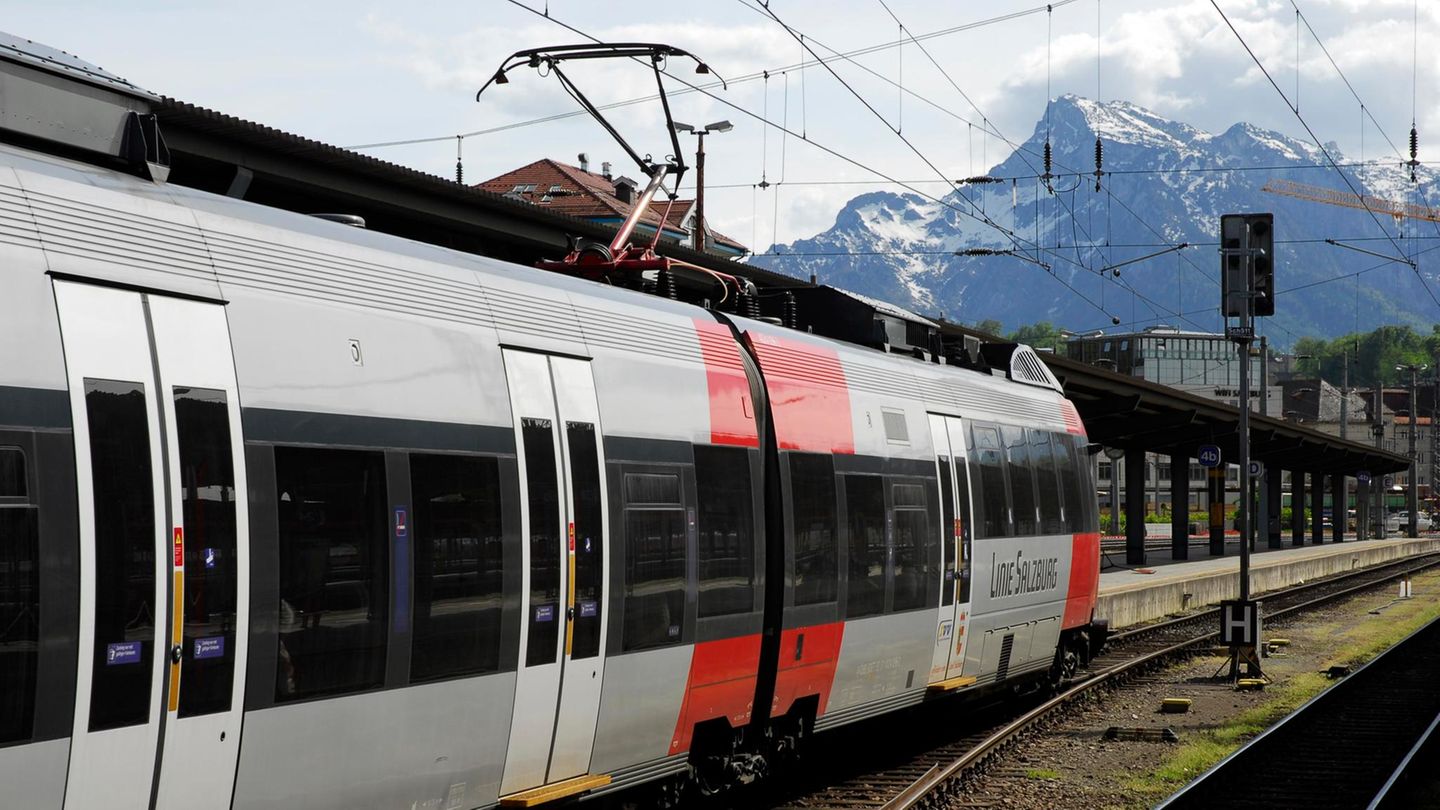Climate ticket: How Austria makes buses and trains more attractive
Travel climate-friendly
For 1095 euros across the country: Austria shows how the traffic turnaround can succeed
With 1095 per year, the Austrian government wants to make public transport more palatable to commuters
© Michael Zegers // Picture Alliance
Climate protection through sustainable transport – a German creed that is hardly promoted in this country. Not so with the neighbors in Austria. The climate ticket was introduced there last week. A role model for Germany?
Airplanes and cars belong according to the Federal Environment Agency one of the most climate-damaging modes of transport. The burning of fuels in road traffic causes more than half of all emissions, calculated among other things by the Federal Statistical Office. One thing is clear: if geothermal warming is to be limited and the 1.5 degree target of the Paris Climate Agreement to be met, greenhouse gas emissions must be slowed down. In Germany, politicians have been participating in a traffic turnaround for years – with moderate success.
The car is still the most popular form of transport among Germans. According to the latest report by the Federal Statistical Office, the trend is even towards second or third vehicles. The price of CO2, which has increased the cost of gasoline by 26 cents since the beginning of the year, does nothing to change that. When it comes to climate-friendly transport, Germany continues to stand still.
It looks different in Austria. The Alpine republic shows how the traffic turnaround could succeed and last week introduced the climate ticket. With the annual ticket, citizens can use all public transport throughout the country from October 26th – including rail and regular transport in the cities. The ticket should cost 1095 euros per year, the ticket is available in advance for 949 euros. There are also discounts for everyone under 26, students, senior citizens and people with disabilities. The network card is intended to make it easier to switch from car to train and bus.
Cutbacks in implementation
“I think you can see how happy I am: this is a great day for the climate and for traffic,” said Environment Minister Leonore Gewessler (Greens) at a press conference. The idea was in the party platforms for 15 years. It was only this summer that showed that climate change has also arrived in Austria.
When implementing the ticket, however, the environment minister had to deviate from her actual plan. Originally Gewessler wanted to offer annual tickets for one federal state and for the whole of Austria for one and three euros per day. A three-stage ticket was planned. While the nationwide ticket corresponds to this plan, all state tickets will quickly cost more. Only in Vienna can you get by on 365 euros. The Austria-wide climate ticket is to come from taxpayers’ money with 150 million euros. Another 100 million are earmarked for financing the network card in the federal states.
Tough negotiations between the nine federal states preceded the climate ticket. The western and southern regions had already approved the new transport concept in August. Only the East quarreled. The reason for this was disputes between the Verkehrsbund Ostregion (Vor), which covers by far the largest commuter region in the country. The association feared massive losses in revenue. Last week, however, the company also took part in the action. Now her “heart project” is complete, Environment Minister Gewessler.
Climate-friendly neighbor?
In addition to the Austrian climate ticket, another major climate policy project was decided on last Sunday. The turquoise-green government agreed on an ecological tax reform. From July 2022, a ton of CO2 will cost 30 euros, and by 2025 the price is expected to rise to 55 euros. The government will, however, repay part of the income to the citizens.
The background to this is the rising emissions in the Alpine republic. Although the share of renewable energies in Austria is 70 percent higher than in Germany – here it should 45 percent of the electricity supply will come from green sources by 2025. At the same time Austria has a massive problem with increasing emissions in road traffic. In addition to the CO2 pricing, the government hopes to use the climate ticket to lure commuters from their cars to public transport, thereby improving the climate balance.
Compared to German offers in local and long-distance public transport, the climate ticket is cheap. The Bahncard 100 costs over 4,000 euros a year – but only covers part of the route network in selected cities. The 365-euro annual sticker has also been discussed for years. Most recently, the Association of Transport Companies rolled into one Position paper Strongly made for this and cited as an example for the city of Vienna.
So far it has been implemented in Augsburg. Schoolchildren, students and trainees benefit from the reduced ticket there. However, it is unlikely that German commuters will benefit from a price cut in the future. Just last week, Deutsche Bahn announced that it would raise ticket prices by 1.9 percent in December.
Sources: Klimaticket.at, “Wiener Zeitung”, “The standard”, ORF




